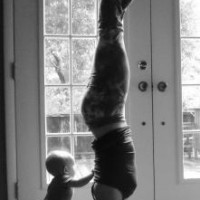In some circles, admitting you had a drink is tantamount to robbing a bank and riding away on your getaway car that is powered by the blood of freshly caught kittens, while eating fried chicken, potato gunning newborn babies off the roof of your apartment and snorting crack off the back of your Gita.
I’ve never struggled to write from the heart and with honesty, even when I know I’m putting my private life out there. Truth be told, most writers write to get stuff off their chests in the first place. If it’s not edgy, if it doesn’t make you agree or disagree instantly, laugh, cry or ponder the meaning of life, then it’s probably not worth reading.
I wrote an article recently about a really hard day I had, and about having a drink at the end of it. Holy mother of dogma. While there were quite a few who could identify (mainly real humans, and mothers like me) there were quite a few purists and nay-sayers (I’m pretty sure they’re robots) as well. I am still getting emails about it, and one or two article stalkers who continue to comment where I comment on the articles I am reading myself.
One email went like this: Yogis should not drink. That is the least that is expected of them.
Really? The least? How about honesty, integrity, kindness, compassion and discipline? How about cultivating our behavior towards others and how we speak to them, how we use their time?
This yoga culture of ours is so deep and rich and varied, made up of people of all races, backgrounds and interests, different socio-economic classes… that’s why there are so many different yoga styles to choose from. It’s like food, really, there’s something out there for everyone’s taste. And it should be that way.
But like anything else, there is a human tendency to set ourselves apart from others, to take our jobs, our interests and our money and find a reason to be better than someone else. This happens in yoga too: my Guru is the real guru, my tradition is the best, my poses are better than yours, I am skinnier than you, I wear the right clothes or eat the right food…I’m so much more yoga than you. Indeed, some of the most hateful comments I’ve ever read have been right here on elephant. Oh say, here, here and here. Well I’m gonna call bulls%^t on all of that right now.
If yoga is about finding out who and what we are, about refining ourselves and trying to come back to our true nature, then it is most definitely not about setting ourselves as better than anyone else, or about judging other people in any way. I can’t tell you how many times other teachers have “confessed” that they aren’t yoga because they drink, smoke, eat meat, don’t meditate, can’t do headstand, can’t do this pose, can’t do that pose…can’t, don’t, won’t, aren’t. I see teachers, more than I would like to admit, who are only interested in vying for position, as if this is some kind of popularity contest.
Yoga has saved my life in so many ways, saved my marriage and made me feel good about who I am. That’s it. That’s what’s important. And I will never, ever, be a teacher who is going to point out anyone else’s lack. One: because I have enough of my own junk to work through (don’t we all?) And two: because lack is an illusion. We are already perfect and have what we need to progress past our samskaras.
It’s one thing to stand on the pedestal, as a teacher or as a student, and point out others’ issues. It’s another thing to dig deep inside yourself and see how our so called flaws can draw us into compassion for ourselves, and more importantly, toward each other.
So try this yogis: the next time you feel drawn to anger or judgment regarding someone else’s behavior, take a minute to breathe. If you’re already upset, the breath is fast and shallow, the blood pressure high. So breathe. Watch the breath slow down and lengthen. Then ask yourself if there is not some way that you can identify with the person you’re upset with, in some way…a time when you might have acted similarly. Then let it go. That’s the yoga, above any advanced pose, the ability to really watch our reactions and interactions in this world and to maybe choose another way.
Lastly: there is no destination, you never reach the finish line. As soon as you think you get it, you’ve lost it and have to start all over again.
That’s why they call it a practice.











Read 126 comments and reply